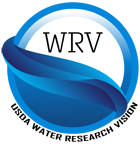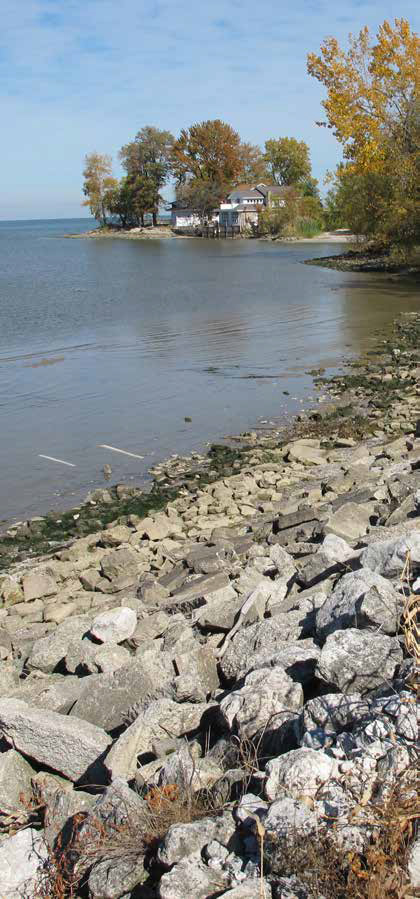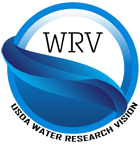ARS developed the USDA Water Research Vision by conducting a facilitated year-long, virtual workshop with nearly 40 ARS scientists from nearly all U.S. regions and water science related disciplines. Participants spanned early to senior level career ARS scientists, with special attention paid to diversity. This extended workshop was followed by several months of writing and synthesis from which the above vision was composed. A facilitated 3-day workshop garnered feedback from partners and stakeholders, including Federal and State agencies, policymakers, and commodity groups.
DAY 1 - GATHERING FEEDBACK ON THE VISION
ARS scientists shared an overview presentation on the Water Resource Vision 2050 which was followed by participants engaging in three separate breakout sessions to discuss six sections of the vision document. The goals of this workshop were to elicit input and feedback on the Water Resource Vision 2050 and for participants to explore potential alignments and mutual interests, to ask questions, and to consider gaps in the vision document. Participants were also invited to review the Water Resource Vision 2050 document and provide specific written comments over the next week.
DAY 2 - BRAINSTORMING COLLABORATION
Participants were asked to engage in four rounds of randomly selected, small group conversations exploring what are the collaborative opportunities and what will help ARS get there by considering these three questions?
1. What’s possible? Where is collaboration possible in water research? What scientific questions can you help each other understand better?
2. What are the risks and rewards of collaborating on water research?
3. What’s needed to do this well? What will strengthen multi-agency, cross-discipline scientific collaboration? Who are the missing stakeholders? Voices? Perspectives? How do we engage with them?
|
|
The fourth round was designed to produce specific topic questions for discussion on Day 3. Specifically, participants were asked to consider what themes or patterns were they noticing? They were also asked to identify their top three topics or questions that should be explored further.
DAY 3 - YOUR TOPICS, YOUR CHOICE
Topic areas from Day 2 conversations were organized into two sessions, and participants self-sorted into their topic of interest in each session. The questions considered on Day 3 were grouped into five general areas: important and emerging water issues, collaborations, incentives, challenges, and big data. Common themes emerged when examining the comments from all categories together: communication, active engagement with all parties affected, support of underserved communities, engagement of early career scientists, and project support from data management and basic administration to challenges in addressing agency requirements.
 |



